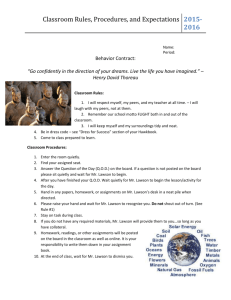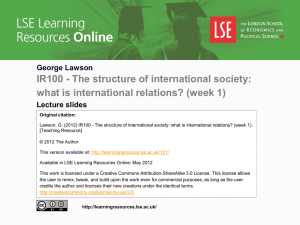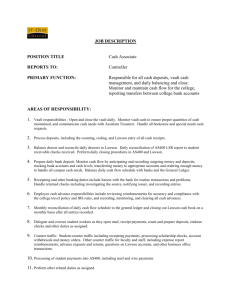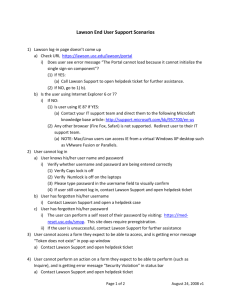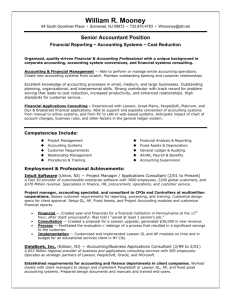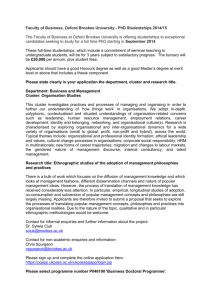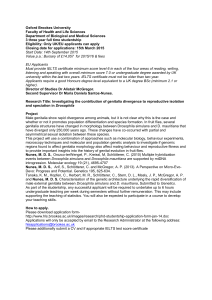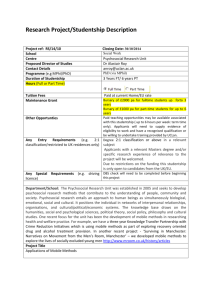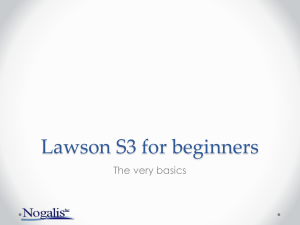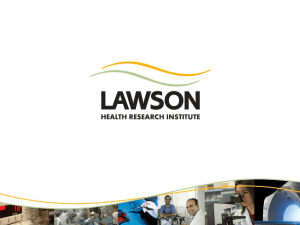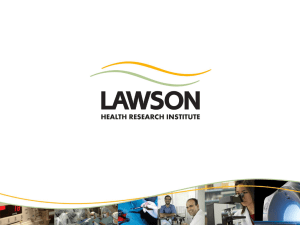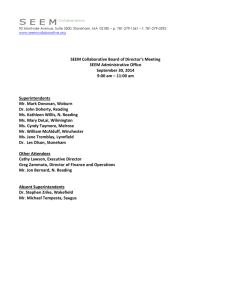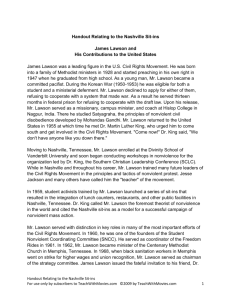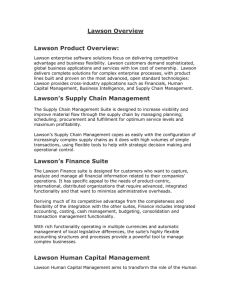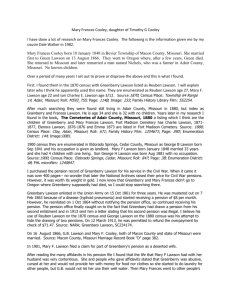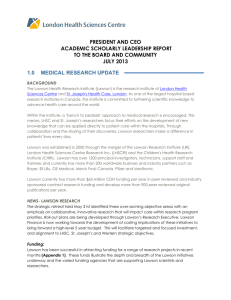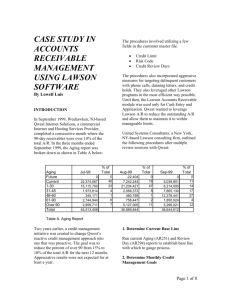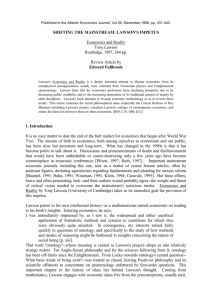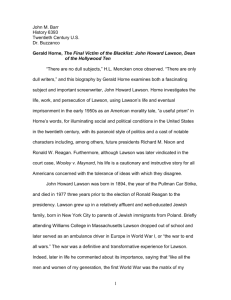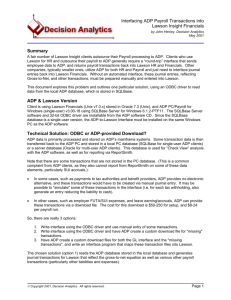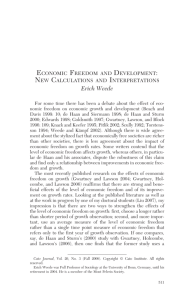Three Year Full Time Studentship Faculty of Health and Life
advertisement
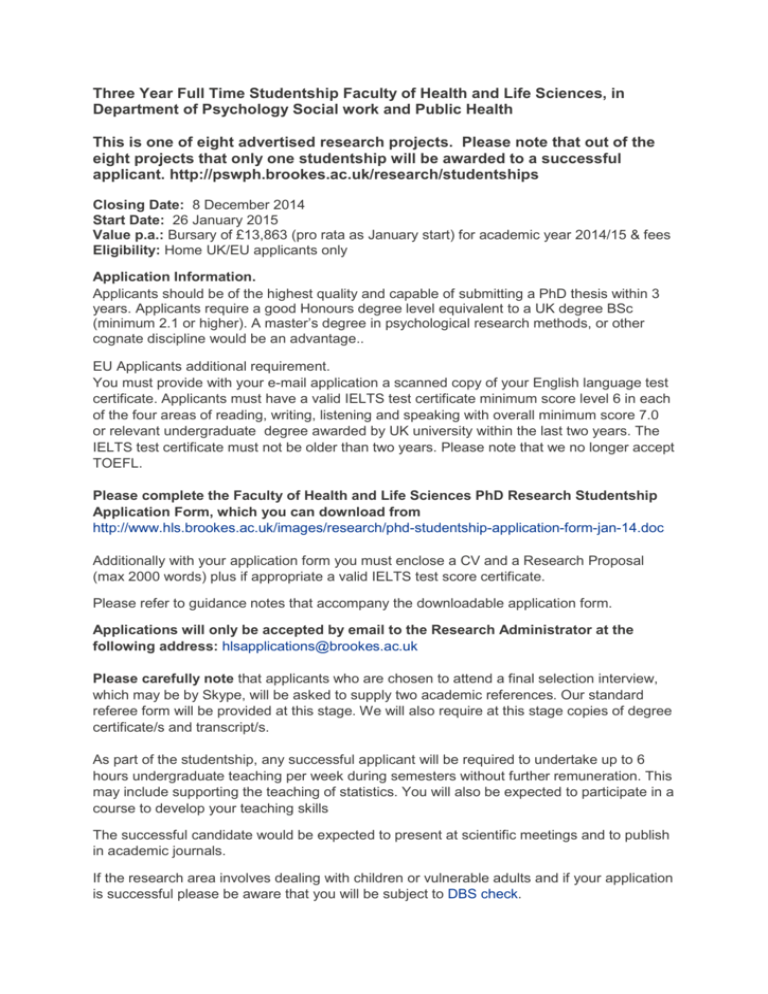
Three Year Full Time Studentship Faculty of Health and Life Sciences, in Department of Psychology Social work and Public Health This is one of eight advertised research projects. Please note that out of the eight projects that only one studentship will be awarded to a successful applicant. http://pswph.brookes.ac.uk/research/studentships Closing Date: 8 December 2014 Start Date: 26 January 2015 Value p.a.: Bursary of £13,863 (pro rata as January start) for academic year 2014/15 & fees Eligibility: Home UK/EU applicants only Application Information. Applicants should be of the highest quality and capable of submitting a PhD thesis within 3 years. Applicants require a good Honours degree level equivalent to a UK degree BSc (minimum 2.1 or higher). A master’s degree in psychological research methods, or other cognate discipline would be an advantage.. EU Applicants additional requirement. You must provide with your e-mail application a scanned copy of your English language test certificate. Applicants must have a valid IELTS test certificate minimum score level 6 in each of the four areas of reading, writing, listening and speaking with overall minimum score 7.0 or relevant undergraduate degree awarded by UK university within the last two years. The IELTS test certificate must not be older than two years. Please note that we no longer accept TOEFL. Please complete the Faculty of Health and Life Sciences PhD Research Studentship Application Form, which you can download from http://www.hls.brookes.ac.uk/images/research/phd-studentship-application-form-jan-14.doc Additionally with your application form you must enclose a CV and a Research Proposal (max 2000 words) plus if appropriate a valid IELTS test score certificate. Please refer to guidance notes that accompany the downloadable application form. Applications will only be accepted by email to the Research Administrator at the following address: hlsapplications@brookes.ac.uk Please carefully note that applicants who are chosen to attend a final selection interview, which may be by Skype, will be asked to supply two academic references. Our standard referee form will be provided at this stage. We will also require at this stage copies of degree certificate/s and transcript/s. As part of the studentship, any successful applicant will be required to undertake up to 6 hours undergraduate teaching per week during semesters without further remuneration. This may include supporting the teaching of statistics. You will also be expected to participate in a course to develop your teaching skills The successful candidate would be expected to present at scientific meetings and to publish in academic journals. If the research area involves dealing with children or vulnerable adults and if your application is successful please be aware that you will be subject to DBS check. https://www.gov.uk/disclosure-barring-service-check Title: Developing the ‘open and closed system thinking’ model with respect to sex differences Supervisors: Dr John Lawson and Dr Luci Wiggs For further information on the research project itself, please contact Dr John Lawson (jlawson@brookes.ac.uk) The aim of this work is to examine open and closed system thinking in the general population with a particular focus on sex/gender differences. In 2003 a new conceptualisation of autism spectrum conditions (ASC) was postulated (Lawson, 2003; 2007) to address shortcomings in the three cognitive models that had dominated research in the area - Executive Dysfunction (Russell, 1997), Weak Central Coherence (Frith & Happe, 1994) and Empathising-Systemising (Baron-Cohen et al, 2002). This new conceptualisation drew on ideas from within the philosophy of science specifically, the work of Bhaskar (1978; 1989) and Lawson (1997) regarding open and closed systems - in an attempt to better ‘capture’ the behavioural features found in ASC. The open and closed system theory postulates that ASC should be conceptualised as involving cognitive proficiency in systems that are ‘closed’ (rule governed and predictable) and difficulty / inability in systems that are ‘open’ (ambiguous and with elements of uncertainty). As a result, individuals on the autism spectrum find open systems (social settings, interpersonal relationships etc.) highly problematic and in extreme cases might inappropriately treat such open systems as if they were closed systems; misclosure (Lawson, 2007). Although the open and closed system theory was developed to better describe ASC it is now widely accepted that this spectrum extends into, and influences general cognition in, the general population. This would manifest as differing capabilities among men and women with regard to open and closed systems that could potentially be expressed across many different areas e.g. moral reasoning, creativity and problem solving. The aim of the proposed work, as stated above, would be to further develop the open and closed system theory and explore aspects of thinking and behaviour that could be influenced by biases towards open or closed systems. More specifically, the project would involve three key stages: 1. Developing a battery of tasks to measure open and closed system thinking in the general population. 2. Use these to identify extreme open and extreme closed system thinkers in the general population. 3. Develop and use both quantitative and qualitative methods to examine the psychological functioning of such individuals across a variety of cognitive and behavioural areas. References Bhaskar, R. (1989). The Possibility of Naturalism. London, Harvester-Wheatsheaf. Lawson, J. (2003). Depth Accessibility Difficulties: An alternative conceptualisation of autism spectrum conditions. Journal for the Theory of Social Behaviour 33(2): 189-202. Lawson, J. (2007) Economics and Autism: why the drive towards closure? In Contributions to Social Ontology, J. Latsis, C. Lawson, N. Martin Eds. Routledge. Lawson, T. (1997). Economics and Reality. London, Routledge. ……………………………………………………………………………………………………………………………………………………………
